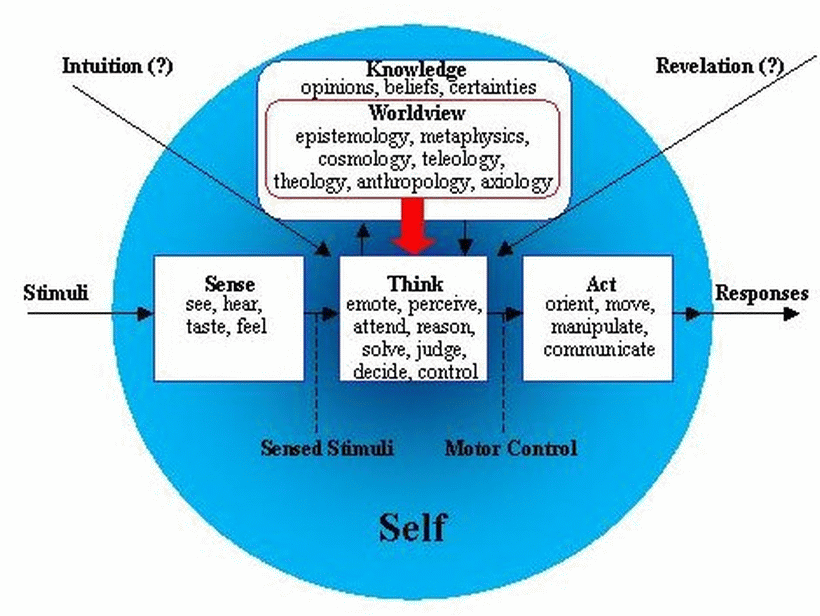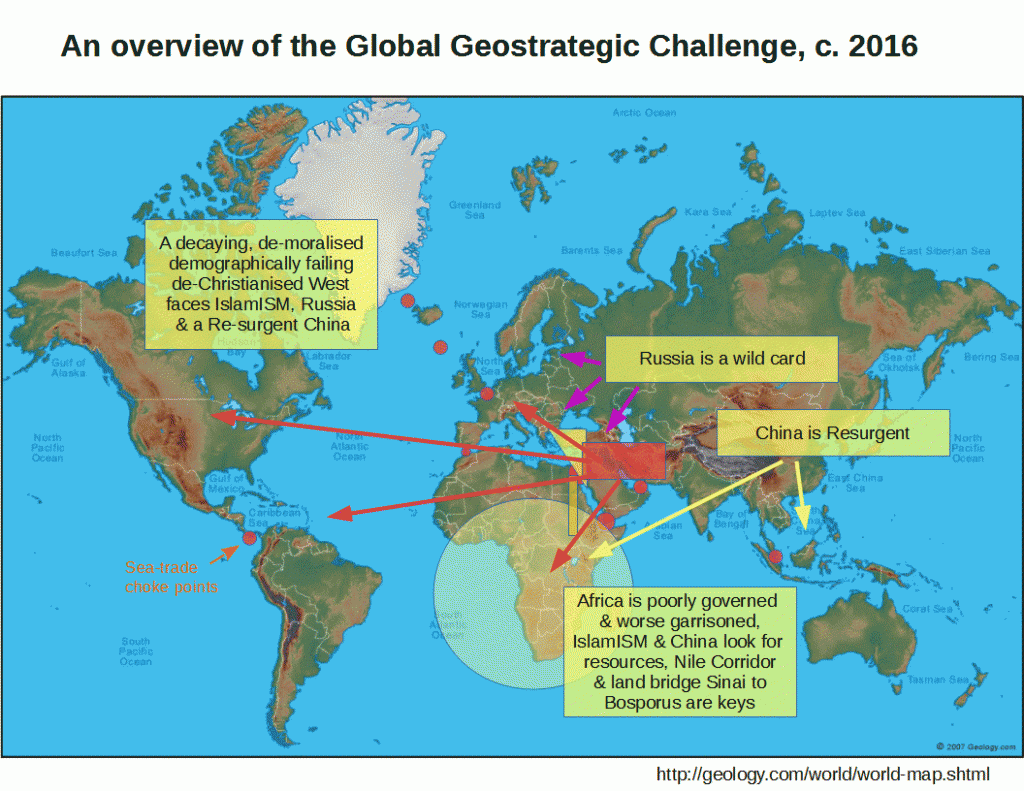In discussing worldviews, I added an update on how they are formed and relate to plausibility structures, influencing how we decide and act individually and as community in ways that can be at least framed if not outright predicted.
As such, I think this is worth headlining separately:
++++++++++
An illustration on factors and influences in worldview formation:

Here, we can observe how our perceptions stimulate our thinking, which is also influenced by available knowledge, opinions and views including on key themes tied to core ideas on the world and oneself in it. As we work through our interior lives, we have perceptions, expectations, emotions, focus of attention, reasoning/logic, valuing informed by sense of duty/morals, solution strategies for challenges, discernment, decisions and judgements, actions and influences. As embodied agents in a world and community, we orient ourselves, move, manipulate objects, communicate.
Knowledge and its warrant are key issues, raising questions of reliability, credible truth, degree of certainty, possibility of error, opinion vs soundness and more. Such is a gateway to characteristic themes of philosophy:
- the nature of knowledge and its credibility [epistemology]
- the nature of reality — what exists, whence, what is the world, what are we etc [metaphysics embracing ontology, logic of being],
- the accepted “world story” that uses these elements to build a narrative on how the world came to be or always was, how we came to be in it, how we are where we are now, why we are as we are
- similarly, where are we headed individually and collectively
- what death is and signifies
- what is ultimate or source reality, or does such exist
- what is duty, what of right and wrong, what of beauty [axiology, ethics and aesthetics]
- what, then, is valuable and to be prized
- thus, religions, philosophies, ideologies, mindsets etc and associated “plausibility structures”:
“In sociology and especially the sociological study of religion, plausibility structures are the sociocultural contexts for systems of meaning within which these meanings make sense, or are made plausible. Beliefs and meanings held by individuals and groups are supported by, and embedded in, sociocultural institutions and processes.” [Semantic Scholar, using Wikipedia]
- what is seemingly or actually sensible, reasonable or logical [logic, plausibility, epistemology, ethics etc]
- what is knowledge, what is known, why, who or what hold credibility, authority and wisdom, why should we trust such sources [epistemology, logic, language, decision-making, governance, policy, law and justice, politics, ponder Plato’s parables of the Cave and of the Ship of State (cf. Ac 27 as a real-life microcosm)]
- Hence, we may see the significance of the following progression of equations:
1: WORLDVIEW + POLICY/CULTURAL AGENDA = IDEOLOGY
2: IDEOLOGY + POWER/STRONG INFLUENCE = REGIME
3: REGIME (AKA, BALANCE OF POWER-FACTIONS) + DECISION-MAKING INFLUENCES = BUSINESS AS USUAL (BAU)
_______________________________________________4: BAU + INSISTENT VOYAGE OF SINFUL FOLLY = SHIPWRECK
- what makes for a good and successful life
- is there direct awareness of knowledge, i.e. intuition
- is there knowledge communicated from God, revelation
- etc
These help us to understand how we come to have a worldview. And, of how and why, in Francis Schaeffer’s phrase, “ideas have consequences.”
It is worth adding, that once a certain pattern of worldviews, associated patterns of attitudes, expectations, values, life goals etc is established, this model can help us identify the likely reaction to situations, trends, shocks, messages, communication etc.
+++++++++
Worldviews mapping is clearly a highly useful exercise, especially in so dangerous a geostrategic situation as has been developing in recent years:

We would be well advised to ponder where we are taking our civilisation. END